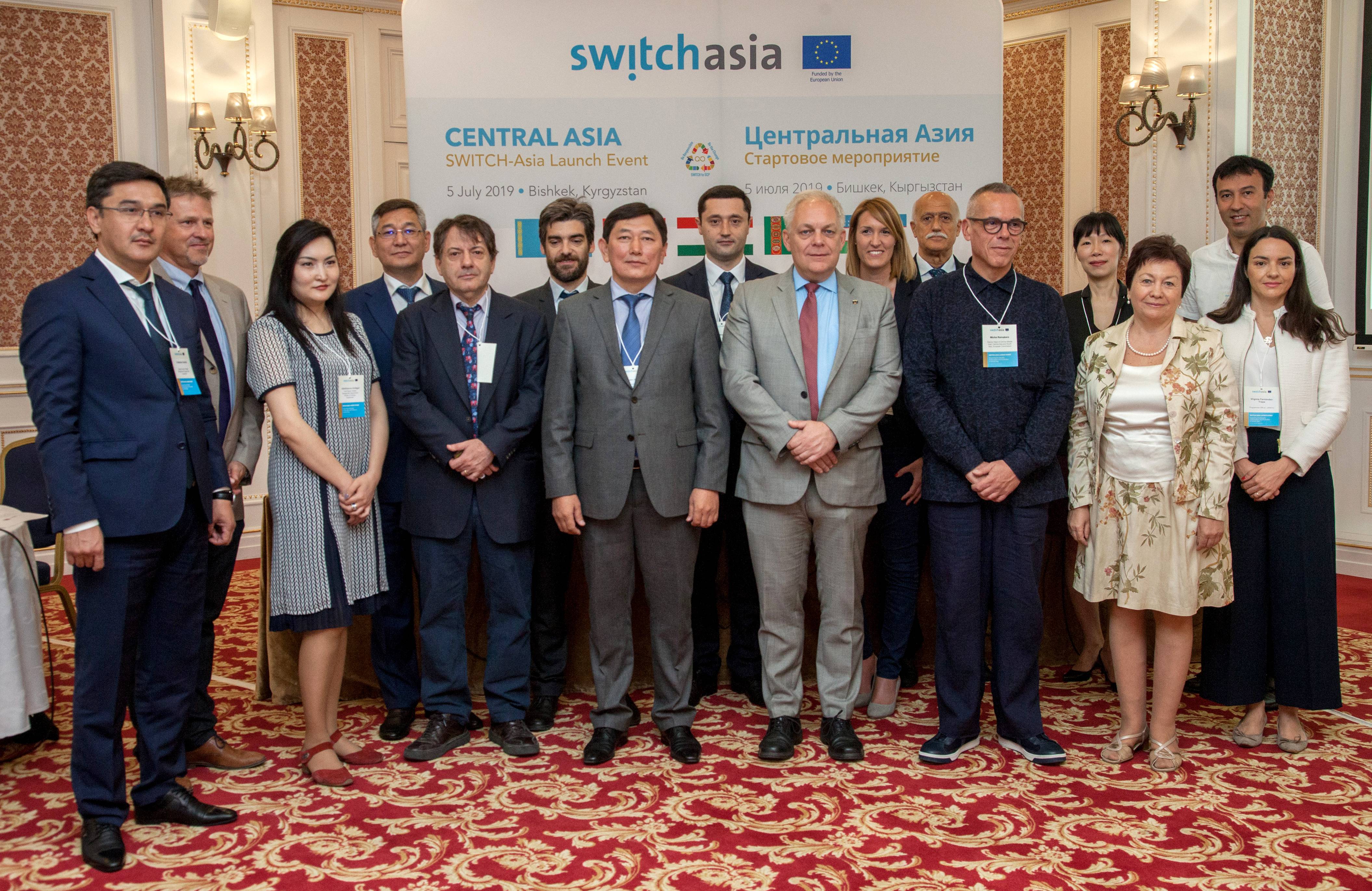
Bishkek, Kyrgyzstan, 5 July 2019 – The European Union has launched the SWITCH-Asia Programme in 2007 to support Sustainable Consumption and Production (SCP) and the transition to green economy in Asia; the programme has been extended to Central Asia in 2019.
On Friday, 5 July 2019, EU SWITCH-Asia has been introduced and launched in Kyrgyzstan, Bishkek, at the Orion Hotel. Main challenges and opportunities related to SCP in the region were discussed, and the work plan for Kazakhstan, Kyrgyzstan, Tajikistan, Turkmenistan and Uzbekistan for the next years was defined.
The event co-organised by the SWITCH-Asia SCP Facility, the European Commission, Directorate-General for International Cooperation and Development (DG DEVCO), and concerned European Union Delegations, brought together over 60 representatives of national governments, EU Delegations, United Nations agencies, and key stakeholders (business, academia, NGOs, MSMEs, among others).
The main focus of the interactive discussions was on the importance and necessity for promoting SCP patterns in Central Asia, in order to support the five targeted countries’ transition towards a low-carbon, resource-efficient and circular economy.
n his opening remarks, Micha Ramakers, Deputy Head of Unit for Middle East, Central Asia and South Asia, European Commission, clearly acknowledged that, “sustainability in our societies is no longer simply about increasing efficiencies or complying with regulations—it is about making fundamental changes in the way business is done and the way the world consumes.”
Eduard Auer, head of the European Union Delegation to Kyrgyzstan, emphasized that Central Asia has a centuries-old tradition of bringing Europe and Asia together. Cooperation between the European Union and the region can bring real, tangible benefits, from stronger and diversified economies, to more job opportunities, and a more peaceful, secure region for all. The alignment of the new EU Strategy on Central Asia and SWITCH-Asia’s overall objectives was also recognised. In particular, the importance of supporting the private sector and small and medium-sized enterprises; turning environmental challenges into opportunities; sharing know-how on renewable energy and energy efficiency; cooperating on energy, water, environment and the use of natural resources; and stimulating regional exchanges on competitiveness and the business environment.
Avtandil Alybaev, Deputy Minister of Economy, Kyrgyzstan, also recognized the benefits of shifting to green economy and the need for more responsible approaches, especially in this rapidly modernizing region. Countries in Central Asia are well-aware of the urgent need to switch to more sustainable production and consumption patterns and green economy. Kazakhstan and Kyrgyzstan are in the process of developing national strategies for green economy, while the Government of Uzbekistan has undertaken significant steps in outlining its commitment to energy efficiency and renewable energy and in particular solar power. Similarly, Tajikistan is committed to implementing substantial ecological programmes, while Kazakhstan is increasingly taking energy efficiency measures into account using climate-friendly technologies, and sustainably managing the country’s natural resources. On a similar pattern, Kyrgyzstan has been pursuing an environmentally friendly model of development through initiatives ranging from organic agriculture to energy-efficient lighting and renewable technologies, as well as the creation of a special economic zone for green tech-companies. Even though many policies are not labelled as SCP, these are already being implemented to varying degrees to make resource use more sustainable and to improve waste management and industry performance in key sectors.
Further integration of SCP into overarching policy frameworks, serious commitment from governments, stronger multi-stakeholders partnerships, and effective awareness raising efforts, were identified as prerequisites for the promotion of inclusive sustainable development. Over the next years (2019-2022), the five countries in Central Asia will be benefitting from the support of experts from the SWITCH-Asia Sustainable Consumption and Production Facility (SCP Facility) and from a grant scheme that has been set up to support pilot projects testing new approaches on SCP in the region.
The launch event agenda is available here
MEDIA COVERAGE
- European Commission Press Release
Central Asia: the European Union matches political commitment with further concrete support - AKIpress Kyrgyzstan
- www.24.kg
- ASIA-Plus Media Group Tajikistan
- Tazabek
- Akchabar.kg
- CA-News.org
- trend news agency
- UZ Daily
- Kabar (Interview with Micha Remakers)



